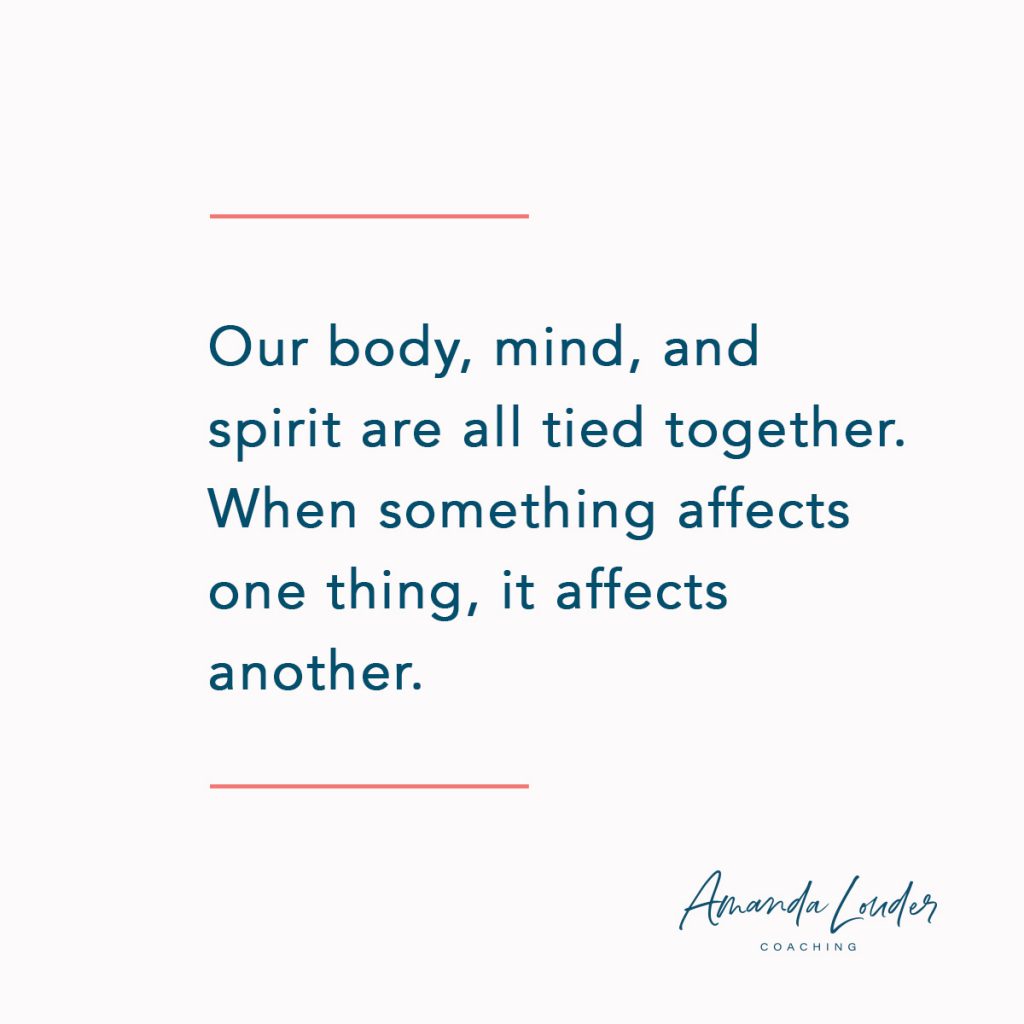
All of us make mistakes when it comes to sex. In this episode, we discuss 10 common mistakes almost every couple makes with sex and how to overcome them.





Show Notes:
Follow Amanda on Facebook and Instagram.
Join Amanda’s Private Facebook Group.
References for this episode:
Show Summary:
Today I wanted to go over ten mistakes we make with sex. Let me just start by saying that MOST couples make these. They are very common. So please, don’t think you are alone in this. Everyone makes mistakes. Everyone has problems. I have made almost all of these. That is one of the things that inspired me to become a sex coach. All my mistakes. My struggles in overcoming my religious beliefs about sex. My naiveté about my body. Struggling with my body image and struggling with low desire or no desire. I’ve been there. But when we work consistently to overcome the mistakes, we can have a truly beautiful and fulfilling sex life.
- Thinking that good sex will come naturally
This is so common. So if this is something you thought in the past, you are not alone.
Before you were married, you probably didn’t have a lot of knowledge of what your sexual relationship would look like or be like. Unless you are one of the very few people whose parents were pretty open about their sex life, most of your ideas probably came from the media. In the movies and on TV, sex looks like two people who have a high desire. They make sex look easy. And you think, if two people love each other, then sex will just be natural. We also have a cultural expectation that if we get married in the temple that marriage and sex will just work. We also think that because it comes naturally, we shouldn’t have to put any work into it. It’s what our bodies were designed to do, right? We will figure it out.
But the truth is, sex is a skill. It requires a LOT of work. We have to figure out what we like, what our partner likes, what positions work best for us. We have to learn how to communicate that and be vulnerable and express that to our partner. We have to get over our psychological issues about needing things and making our needs known. We think that good sex should just happen without having to talk about it, but that just doesn’t work.
And when things don’t come naturally, when things aren’t magical, we think someone or something is broken. We start having thoughts like “I married the wrong person” or “If he/she loved me, they would just know what I need” or “If we were truly in love, we would be so attuned to each other that we shouldn’t need any communication or instruction.”
Logically we may understand that we do need to communicate, and things may not work the way we want, but emotionally, we don’t. Our lower brain that is always on the lookout for danger (real or perceived) tells us that if we don’t get sex, we will die. And if the person who is supposed to share it with us doesn’t, then something must be terribly wrong. The overall quality of our life and our marriage goes down if our sex life isn’t good.
So how do we overcome this? We need to understand that when “problems” arise, they aren’t actually a problem but just something else you need to learn about — another set of skills you need to learn and master. Sex is ever-evolving over the course of our lifetime, and there is always more to understand about it and our spouse.
2. Thinking that when bad sex happens – it’s irreparable
It’s so funny that this one is even a problem because when you say it out loud, it’s almost laughable. Of course, we have problems, and of course, we can work through them, but when those moments arise, wow, can they seem catastrophic. We think that when bad things happen, there is nothing we can do about it. That bad sex can’t be improved. That when it happens, it’s all downhill from here.
I want you to think about your wedding night. If you are like most couples I know, the wedding night was NOT the magical night that you thought it would be. Two virgins, coming together, not knowing anything. A groom who is raring to finally experience intercourse, for it to be over all too quickly, and a bride who is so very anxious about something that big going inside of her, the pain she’s been told she’ll experience, and intercourse isn’t actually pleasurable. Sound familiar? So one bad night…and of course, it’s all downhill from here.
Another scenario is that things have been going pretty well. You feel like you are getting the hang of things. And then, something happens. Maybe he can’t get it up, or no matter how hard you try, she just can’t seem to orgasm. Things were going so well, but now you don’t know how to recover. You think, “we are incompatible.” “This isn’t working.” Shame sets in.
Throughout your life together, things are bound to happen. So what do you do about it? You communicate. You work together to get through it. You have a sense of humor about it. You realize that one bad experience doesn’t mean it will all be bad. Learn from it, and move on. Hot sex comes when you work at it, and both parties are anxiously engaged in trying to make it great — and understanding that things happen.
Just like your relationship, your sex life is bound to have some ups and downs. Some rough patches. But how you handle it when it does, makes all the difference. Very few things are unresolvable.
3. Lack of knowledge about sex
We talk about this one a lot on this podcast. As a conservative Christian culture, there is a significant lack of knowledge when it comes to sex. We don’t talk about it. We don’t talk to our kids about it in a healthy, positive way. We go into marriage without a lot of knowledge. This is a mistake, but one that is easily fixed.
You are working to fix it right now by listening to this podcast. What else are you doing to increase your lack of knowledge in this area?
Do you know what you believe about yourself and your sexuality?
What do you believe about your partner?
What do you believe about sex itself?
Do you understand how your body works?
Do you know how a woman orgasms?
Do you understand how your spouse’s body works?
Do you know how to give oral sex?
Do you understand how sex works best for you and your marriage?
Everyone is going to be different, but there is a basis of knowledge that is pretty standard for most couples. Don’t get your education from porn…it is not a great resource for what sex really is. Seek out experts (like myself) to educate you.
On that note, I wanted to let you know about a little project I’m working on. I am currently writing an online course for engaged couples. This course is going to be fantastic and offer so much help to couples who are about to get married. So, if you know of someone who is engaged, please share with them about this course. Or better yet, you can gift it to them. For more information, go to AmandaLouder.com/engaged, and you can see all the details and sign up to get an update when it is released.
4. Not making sex a priority.
This mistake usually comes in the middle stages of life where you are deep in the trenches of raising kids.
In the beginning, of course, your marriage and your sex life are a priority. You just have each other, and you make the most of it. But as kids come and more kids come, it takes much more to make sex a priority. I want to refer you back to Episode 83 – Making Time For Sex. It gives a lot of suggestions on how to make sex a priority when you are in this middle stage.
A lot of times, it’s us women who don’t make sex a priority. Women have less than 1/10th of the testosterone that men do. Testosterone is the hormone that gives men the physiological drive for sex. So they are naturally going to want it more. They typically have a physical need for it more than women do. Women just aren’t as pushed physiologically for it. We have a lot of responsibilities with the house and kids, and physically we just don’t have it in us. But, knowing this, that is why we must choose to make sex a priority. We have to prioritize it in our minds to make this connection with our spouse.
But, it’s not all up to women. Men also need to make it a priority. But the way they do this is different than women. They need to make it a priority in the actions to seduce their wives, much in the same way they did at the beginning of the relationship. To make the efforts to help their wives get in the right frame of mind and help release some of the burdens that are placed on them so that they can get themselves more in the mood. Most men, at this middle stage of life, tend to put more effort into work and building their careers and less into building their relationship. They still have the physical drive for sex, but don’t put in the work to help their wives emotionally get there. If men approached sex at the beginning of their relationship with the same cavalier, “I’m here, so let’s go” attitude, then the relationship probably wouldn’t have progressed….
Another way to look at this is that priorities come from time and money. Where are you spending your time and your money…those are your priorities?
In this middle stage, children are the priority – they get the time and the money. But kids don’t provide stability. Parents do. You need to nurture that relationship to create that stability, and a good sex life is the foundation for that stability. If there isn’t that foundation and stability, the children will suffer. You’re doing it for the kids folks! The kids are going to leave, and you are going to be left sitting across the table from a person you haven’t had sex with in years.
The best thing you can do for kids is making that marriage strong – and one of the best ways to do it is making time for that connection and sexual relationship. Spend time and spend money on creating that connection (date nights, vacations, etc.)
5. Lack of Planning
This one goes right along with priorities and what I discussed in Episode 83. Sex needs planning, which doesn’t necessarily mean scheduled sex. Lots of people want spontaneity and don’t want to schedule sex, but it does take planning. Nothing in our lives happens spontaneously. Anything of importance takes planning.
So how do you plan for sex? If you are the higher desire partner, you plan date nights and alone time together. You do what you can to helping the lower desire partner take off the sexual brakes. If you are the lower desire partner, your job is to get your mind in the right place for sex. Make the conditions for sex right for yourself. Set a day (you don’t even need to tell your partner) that you are going to initiate and get yourself in the mood. Take your own brakes off. A lot of times, low desire partners can’t give themselves over to someone else because they haven’t had enough time for themselves. So get some time for yourself so you can get yourself in the mood, take a bath, get a babysitter, go to the spa. Whatever you need. Plan to be engaged in a sexual relationship. If you need a lot of things to go right to be in the mood, make it go right. Make it happen. Don’t expect to just be in the mood, and don’t expect your partner to do it for you.
6. Thinking desire is only hormonal.
This is a big one and one I see all the time. We think that when we don’t feel desire like we used to, that something is wrong with our physical body. Something is wrong with our hormones. We see this a lot with women when they have young children. But lack of desire is rarely a hormonal problem. Of course, see your doctor and get it checked out, but most of the time, your hormone levels are fine.
What is actually happening is beyond the physical. Our body, mind, and spirit are all tied together. When something affects one thing, it affects another. So lack of desire is a complex issue that can come from a variety of sources.
Lack of desire can come from trauma, emotional issues, relationship issues, religious beliefs, from being disconnected from yourself or your partner. It comes from many aspects that you wouldn’t think it would be tied to.
Desire is a feeling. And one of the concepts I teach is that all of our feelings come from a thought. Sometimes those thoughts CREATE desire. But many times, the thoughts we are having, put the brakes on. Thoughts we are having tell our brain NOT to let us have desire because now isn’t a good time. So we have to create those thoughts, on purpose, to have the feeling of desire.
7. Letting sex get boring.
With sex, over time, there tends to be a lack of priority and planning, like we have talked about. The frequency of sex goes down. But, what is also very common is effort and creativity go down over time as well. Sex becomes boring. We do the same things over and over. It’s no longer thrilling and exciting. It’s habitual. It’s routine. It’s vanilla.
As with everything in our life, we have a particular way of doing things. A place where things work, and it’s comfortable. Think about when you go to your favorite restaurant. You know what you like, and you always order that. You don’t venture out and try new things because you fear that if you try something else, it won’t be as good as your favorite meal. The same goes for sex. We know what we like. We know what works. So we don’t venture out and try new things. We stay in our comfort zone.
This is normal human behavior. We all do it. When you are learning something new, you engage your higher brain. But once you have learned how to do something, then it gets delegated to the lower brain. The lower brain takes care of the things that we repeatedly do, and we don’t have to think about much as a way to reduce effort. Having sex, the same old way, every time, is probably not something you have to think about, so it’s in the lower brain. But it probably isn’t super exciting either.
So, how do we fix this? Mix it up! Be creative. Try new things. Be less inhibited. Push against your personal boundaries a little bit. If you need ideas, check last week’s episode for a list of apps that I like that can help you explore new things.
The scary thing about wanting to mix it up is that you are afraid of rejection. You are scared that if you suggest something, your partner might think you are crazy or perverted or something. Your partner may not like it, and that is ok. You need to remember that them saying “no” is about them and their own insecurities and not about you.
I recently heard this analogy of our comfort zone. Think about it like a target. The inner circle is our comfort zone. This is where things are comfortable, but where they also become vanilla. The next ring is our growth zone. This is where things are uncomfortable, but it’s important to push out into this zone to help you change and grow and evolve. And while it might not feel great, you see the benefits. The outermost ring is the Discomfort Zone. This is the zone that takes you too far, and you shut down because you don’t feel safe, or things are harmful. We don’t want to go there. You don’t want to push out too quickly. You probably don’t want to go straight from just missionary sex to bondage. You need to take things one step and a time.
8. Assessing your sex life based on one bad moment.
This kind of ties into number 2. Think about your sex life. There’s probably been one moment (or several) that haven’t been great. Are you focusing on that moment and staying stuck there?
Let me give you a couple of examples.
I have a client who was told that sex on her wedding night was going to hurt. She had so much anxiety about it. And when it came time for intercourse, her body was so tense that, of course, it was painful. Now, years later, she relives that painful moment each time, and continues to have anxiety, continues to have pain. She’s come to see me because things are awful and she never wants sex, and it’s taking a toll on her marriage.
Now, here’s another example. I have a client that she and her husband were open to trying new things. They decided to try a new position, doggie style. She was on her hands and knees, and he was getting ready to penetrate, and he accidentally put his penis in her anus instead of her vagina. There wasn’t enough lube, and it was painful. She immediately told him to stop, which he did. He felt so bad. But she just laughed about it. Then he laughed too. And it didn’t deter them from trying again, another night.
Bad things happen. We all have these moments. The important thing is to laugh about it and move on. Don’t let it stop you in your tracks. Don’t’ let it keep coming up over and over. Don’t let anger, disappointment, or criticism get in there. Just laugh and move on.
9. Take things too personally
This one goes along with the previous one but happens quite often. We take those bad moments too personally. Or we take something our partner says or does personally. We internalize it. We say, “it’s my fault,” or “he doesn’t desire me,” or “you don’t want to have sex with me,” or “you don’t find me attractive anymore.”
I see this a lot if the husband has trouble having an erection or if she has trouble coming to orgasm. We take these things that happen and internalize them and make them personal. It doesn’t need to be that way.
I also see things like dips in frequency, or things change, or they aren’t like they were in the beginning. We take those personally.
I want you to think about when you take things personally. What do you do? Most likely, you withdraw to protect yourself. And that doesn’t create a very good sex life. So many times, we don’t see the problem as external to us, so we don’t do the things that might naturally solve it. Like talking about it.
10. Lack of talking
No one talks about sex! We need to talk about sex. We need to understand that whatever we are going through is normal. We need to have a better understanding of our bodies and what to expect. We need to understand our beliefs. We don’t need to overshare about what we did last night with our partner, but we can share the good and the bad and normalize it because we are all adults, and we should all be having sex!
We also need to be talking to our partner about sex. What we like, what we don’t like. What we want and don’t want. What feels good to us. Where do we like to be touched. What do we like to do. What works and what doesn’t. What do we want to try. Your hangups and anxieties. Your inner thoughts. How you like them to initiate. What turns you on. What puts on your brakes.
You need to talk about what sex means to you, and what it does for you, what it does for your relationship.
Your marriage is going to be long. Eternity. You are building the foundations of your sexual relationship now. What do you want to be building? Do you want your sex life in the future to be even better than it is now? How can you make that happen?
By talking, you can discover solutions to issues that maybe you would have never thought about on your own.
When you talk, you can understand your partner better, and they can understand you better.
Also listen….
Sex is awkward and funny. There are weird sounds and bodily functions. If you can learn to talk about it and be open with your partner about it, taught about it, it makes talking about anything so much easier!



